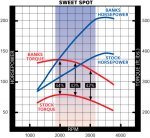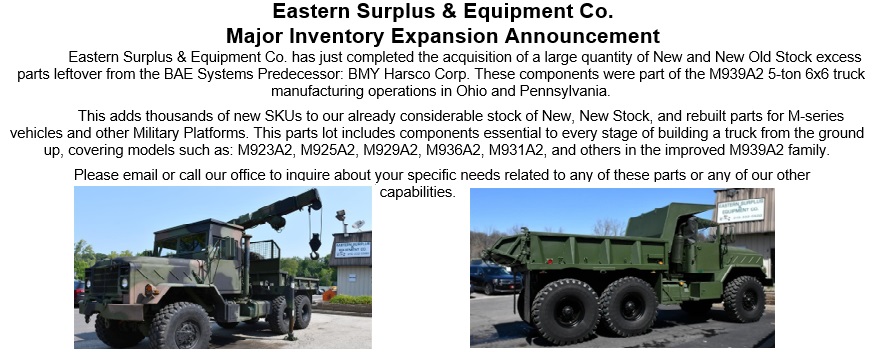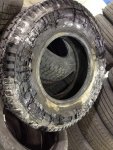WOW! You guys have big cojones - and good earplugs.
According to this
calculator, the poor 6.2L will turn ~3400 rpm at 70 mph and ~3900 rpm at 80 mph with 4.56 gears and 33" tires.
Max horsepower for this engine is around 3600 rpm. At the higher speeds mentioned above you are already over the hump on the horsepower curve. More importantly, you are operating in a rpm range where the torque has already dropped significantly below max which means that engine efficiency is significantly less than optimum. Max torque (around 2200 rpm for the 6.2L NA) means max efficiency as a rule of thumb.


The only remaining question is at what rpm something is going to let go inside the engine or the valve train is going to float. Some sources cite 4200 rpm as "redline".
Why do diesel engines generally turn slower than their gasoline cousins?
One reason is that the fuel gets mixed with air in the combustion chamber and that takes time. The faster the engine runs the less time is available to atomize the fuel, bring it in contact with Oxygen atoms, and combust it completely. Keep in mind that diesel fuel gets injected around TDC and ignites instantaneously, whereas the gasser sucks in mixture from BDC and has about one entire stroke to create the mixture before the spark ignites it.
The other reason why diesel engines like to turn slower is their higher reciprocating masses. Due to the more violent combustion events, a diesel engine needs heavier pistons, connecting rods, and cranks. The faster you accelerate and decelerate these reciprocating masses the higher the forces get that cause wear and ultimately failure. These forces increase with the square of the velocity (F=m*a=m*v^2).
Just to be clear: I am not advocating for "lugging" engines. From about max torque rpm and to where the hp curve flattens ("sweet spot" in diagram above) should be the desirable operating range if you want to get some efficiency and durability.
Another note: Some folks may remember the sound of the old screaming Jimmy's and may be tempted to duplicate that sound with a 6.2L. However, the old Detroits (6V53, 6-71, 6V71, 6V92, etc.) were 2 stroke engines that would sound twice as fast due to firing twice as often for any given rpm.
</soapbox>










 then I stepped on, put the switch up and all was fine
then I stepped on, put the switch up and all was fine 


